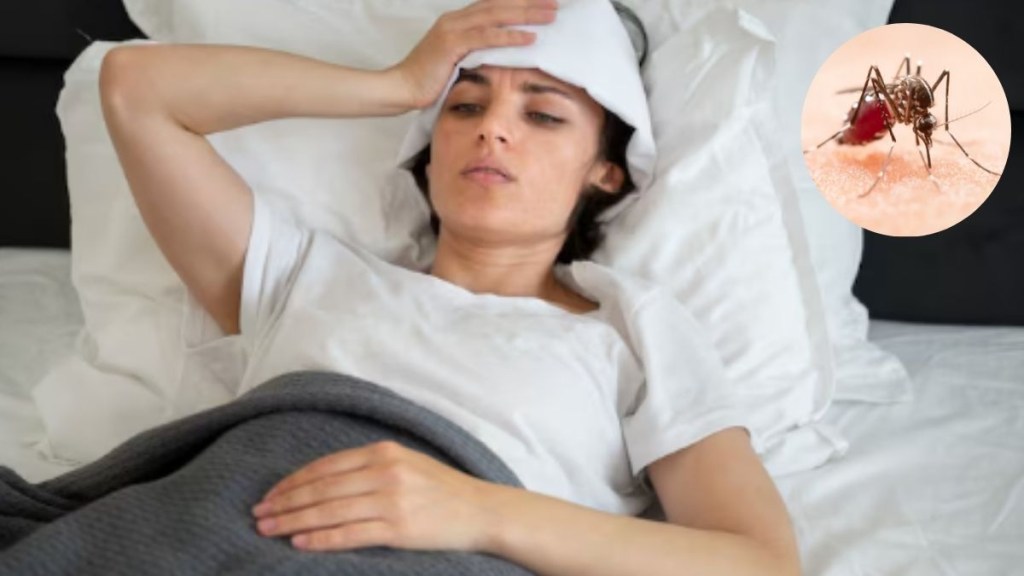As Delhi woke up to heavy rains today, the showers also brought fresh concerns. Waterlogging and poor drainage have created breeding grounds for mosquitoes, pushing malaria cases to a five-year high. Municipal records show 135 cases reported since January, with the West Zone of the Municipal Corporation of Delhi (MCD) logging the highest count at 30. The data also includes figures from the New Delhi Municipal Council (NDMC), Delhi Cantt, and Indian Railways. Officials said 16 additional cases were recorded but could not be fully mapped due to incomplete or incorrect addresses.
This year, Delhi has seen 115 malaria cases. There were 51 last year, 25 in 2022, and just 16 in 2021 during the same months. In all of last year, the city reported 792 cases.
Why cases are rising
According to MCD officials, the most common mosquito breeding grounds are household water containers and neglected spots, coolers, drums, flower pots, money plants, fridge trays, discarded tires, and scrap lying in the open, especially on rooftops.
“This is a very conducive environment for large mosquito breeding, and people should take preventive measures,” said an MCD official, urging residents to keep their surroundings dry and clean.
Signs and symptoms of malaria
Malaria is caused by Plasmodium parasites transmitted through the bite of an infected Anopheles mosquito. The World Health Organisation (WHO) reveals that symptoms usually appear 10–15 days after the bite.
Common signs include:
- High fever with chills
- Sweating
- Headache
- Muscle aches
- Fatigue and weakness
- Nausea and vomiting
- In severe cases: confusion, seizures, breathing difficulties, or organ failure
If untreated, malaria can be life-threatening, especially for children, pregnant women, and those with weak immune systems. Hence, early diagnosis through a simple blood test is key to recovery.
How to stay safe from malaria
To keep yourself safe, here are some tips that may help reduce the risk:
- Eliminate stagnant water from coolers, plant trays, and other containers at least once a week.
- Cover water tanks and storage drums tightly.
- Use mosquito nets while sleeping, especially in high-risk areas.
- Apply mosquito repellent creams on exposed skin.
- Wear long-sleeved clothing in the evenings and early mornings when mosquitoes are most active.
- Install mesh screens on windows and doors.
The MCD has also been issuing legal notices, over 76,000 so far, for ‘mosquitogenic’ conditions, and more than one lakh houses have been found positive for mosquito breeding.
Not just Malaria: Dengue and Chikungunya cases on the rise too
This monsoon, the danger isn’t limited to malaria, as dengue and chikungunya cases are also on the rise.
- Chikungunya: 20 cases have been reported so far this year, with the West and Central Zones reporting five each. While numbers were lower in 2021 and 2022, last year saw 267 cases across the national capital. The infection causes severe joint pain, fever, rash, and fatigue, and although rarely fatal, it can lead to long-term pain in some cases.
- Dengue: Delhi has already seen 291 dengue cases this year. Last year, 11 people died from the disease. The Central Zone currently has the highest number of cases at 39. Dengue can cause high fever, severe headache, muscle and joint pain, and in severe cases, bleeding and shock.
Both dengue and chikungunya cases typically surge during the monsoon months when Aedes aegypti mosquitoes find ideal breeding conditions in clean, stagnant water.
Experts warn that the situation could worsen in the coming weeks, especially with continuous rains. The combination of malaria, dengue, and chikungunya puts extra pressure on hospitals and increases the risk of outbreaks.
With more than one lakh breeding sites already identified this year, Delhi residents are being urged to take prevention seriously. Simple steps like removing stagnant water, using repellents, and ensuring household cleanliness could go a long way in breaking the cycle of mosquito-borne diseases.
If you develop symptoms like persistent fever, chills, or severe joint pain, go see a doctor without any delay, as early diagnosis can save lives.







